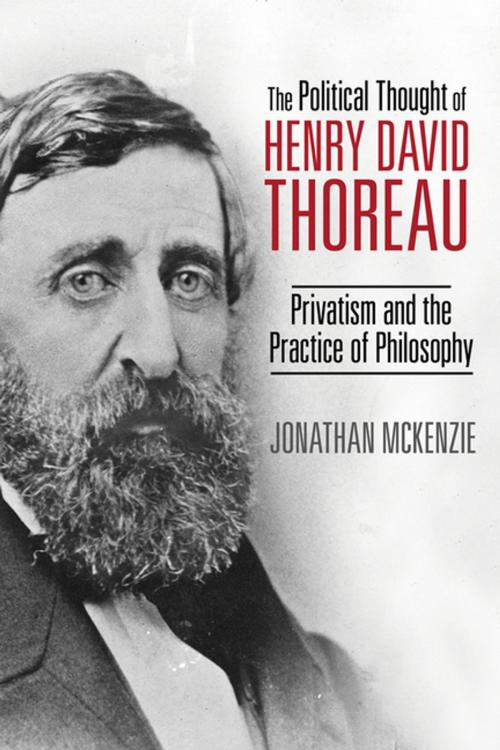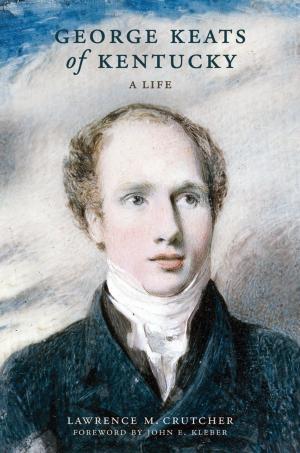The Political Thought of Henry David Thoreau
Privatism and the Practice of Philosophy
Fiction & Literature, Literary Theory & Criticism, American, Nonfiction, Religion & Spirituality, Philosophy, Political, Social & Cultural Studies, Political Science| Author: | Jonathan McKenzie | ISBN: | 9780813166315 |
| Publisher: | The University Press of Kentucky | Publication: | December 29, 2015 |
| Imprint: | The University Press of Kentucky | Language: | English |
| Author: | Jonathan McKenzie |
| ISBN: | 9780813166315 |
| Publisher: | The University Press of Kentucky |
| Publication: | December 29, 2015 |
| Imprint: | The University Press of Kentucky |
| Language: | English |
Today, Henry David Thoreau's status as one of America's most influential public intellectuals remains unchallenged. Recent scholarship on Thoreau has highlighted his activism as a committed antislavery reformer and proto-environmentalist whose life became a seminal model for the image of the liberal conscience. While modern scholars have firmly established Thoreau's relevance, their focus on his public activism has undervalued the complexity and range of his contributions to American political thought and has neglected crucial facets of his philosophy regarding democratic citizenship.
In The Political Thought of Henry David Thoreau, Jonathan McKenzie analyzes not only Thoreau's well-known works but also his journals and correspondence to provide a fresh portrait of the Sage of Walden as a radical individualist. This new account examines the influence that ancient philosophers, particularly the Stoics, had on Thoreau and demonstrates his importance as one of the best modern interpreters of Socrates's vision of the self. McKenzie also argues that Thoreau's own political life was shaped by a theory of privatism that encouraged both a radical simplification of one's commitments and regular engagement in experiments that plumbed life for its most essential values.
Shunning grand abstractions and cosmopolitanism in favor of the wonders of daily life, Thoreau's work provides a critique of political and social life that seeks to restore the wholeness of the human subject by rescuing it from the clutches of public concerns. Indeed, McKenzie's nuanced, provocative analysis reveals Thoreau as a multifaceted philosopher who brilliantly wrestled with the complexities of ethical participation in modern democracy.
Today, Henry David Thoreau's status as one of America's most influential public intellectuals remains unchallenged. Recent scholarship on Thoreau has highlighted his activism as a committed antislavery reformer and proto-environmentalist whose life became a seminal model for the image of the liberal conscience. While modern scholars have firmly established Thoreau's relevance, their focus on his public activism has undervalued the complexity and range of his contributions to American political thought and has neglected crucial facets of his philosophy regarding democratic citizenship.
In The Political Thought of Henry David Thoreau, Jonathan McKenzie analyzes not only Thoreau's well-known works but also his journals and correspondence to provide a fresh portrait of the Sage of Walden as a radical individualist. This new account examines the influence that ancient philosophers, particularly the Stoics, had on Thoreau and demonstrates his importance as one of the best modern interpreters of Socrates's vision of the self. McKenzie also argues that Thoreau's own political life was shaped by a theory of privatism that encouraged both a radical simplification of one's commitments and regular engagement in experiments that plumbed life for its most essential values.
Shunning grand abstractions and cosmopolitanism in favor of the wonders of daily life, Thoreau's work provides a critique of political and social life that seeks to restore the wholeness of the human subject by rescuing it from the clutches of public concerns. Indeed, McKenzie's nuanced, provocative analysis reveals Thoreau as a multifaceted philosopher who brilliantly wrestled with the complexities of ethical participation in modern democracy.















